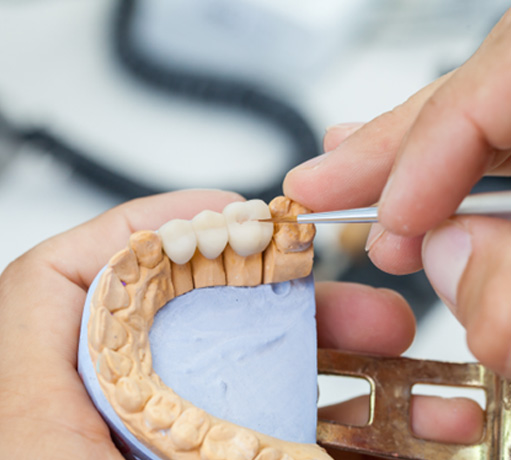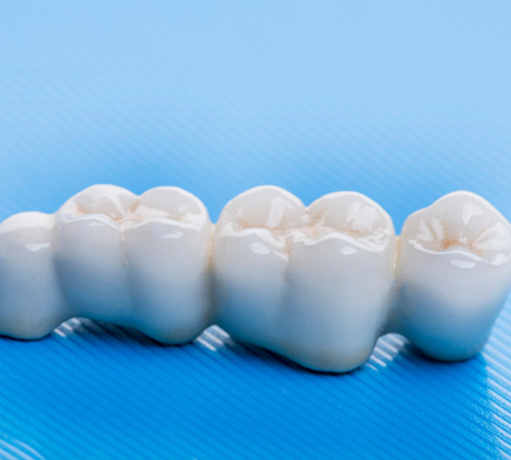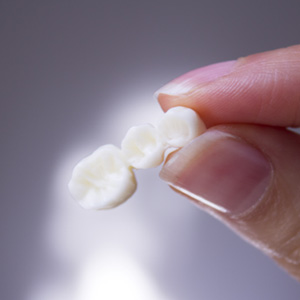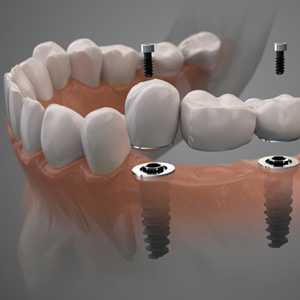Dental Bridges – Medford, NJ
Quickly Filling Your Smile’s Gaps

As you’d expect, any degree of tooth loss isn’t good for your body. Missing teeth result in smile gaps that harm your appearance, oral health, and quality of life. That said, losing several adjacent ones is especially bad; this problem puts your grin at even greater risk. The bright side is that our practice can solve your dilemma with dental bridges in Medford. For details on them and what they do, please keep reading or book a consultation!
What is a Dental Bridge?

A dental bridge is a device used to replace lost teeth. To that extent, it's often made of special materials fused to either side of an artificial tooth (i.e., pontic). This design ensures it can replace one to four missing adjacent teeth, “bridging” large gaps in your smile.
Given the points above, the best dental bridge candidates have missing adjacent teeth. These patients benefit most from treatment, as they can restore their smiles in one “session.” Still, nearly any healthy adult can qualify for dental bridges; you just need decent oral health.
The Types of Dental Bridges

At the consultation, our dentists will assess whether dental bridges suit your needs. They’ll do so by performing an oral exam that checks your mouth for problems. Based on the feedback from this exam, our team will confirm whether treatment would help.
If we approve your treatment, we’ll likely suggest one of the following dental bridges:
Traditional Dental Bridge

Per its name, a traditional dental bridge is the sort that’s been used the most. It consists of dental crowns fused to either side of a “pontic” (i.e., an artificial tooth). Due to this design, the device must fasten to your nearby natural teeth to stay secure.
Perhaps the biggest perk to traditional bridges is that they cost (relatively) less. Since they use common materials, they don’t tend to be expensive. However, a dentist must alter some of your teeth to place them.
Implant Bridge

An implant bridge is one that uses dental implants – metal posts set in your jaw. As these small posts fuse with your jawbone, they keep the larger restoration stable and secure. That means the final implant bridge shouldn’t ever fall, slip, or get loose.
A noted benefit of implant bridges is that they don’t alter existing teeth. Since they rely on dental implants, a dentist won’t have to “prep” nearby teeth to place them. In exchange, an implant bridge will often cost more than a regular one.
The Benefits of Getting a Dental Bridge

By getting one of our dental bridges, you’ll enjoy upsides like:
- A Healthier Mouth – Since a dental bridge fills smile gaps and stops harmful bacteria from spreading, it reduces your risk of gum disease and other oral issues.
- A Prettier Smile – Due to their quality materials, dental bridges blend seamlessly with your smile. They tend to look so lifelike that others won’t even know you have one.
- Easier Meals – A dental bridge has quality teeth made of durable materials, so it helps you chew foods more easily.
- Long-Lasting Effects – On average, a dental bridge lasts 5-15 years; a well-maintained one can work for 20 years or more.
You don’t have to put up with empty spaces in your mouth. Instead, visit our office for dental bridges – they’ll make your grin nice and whole!

